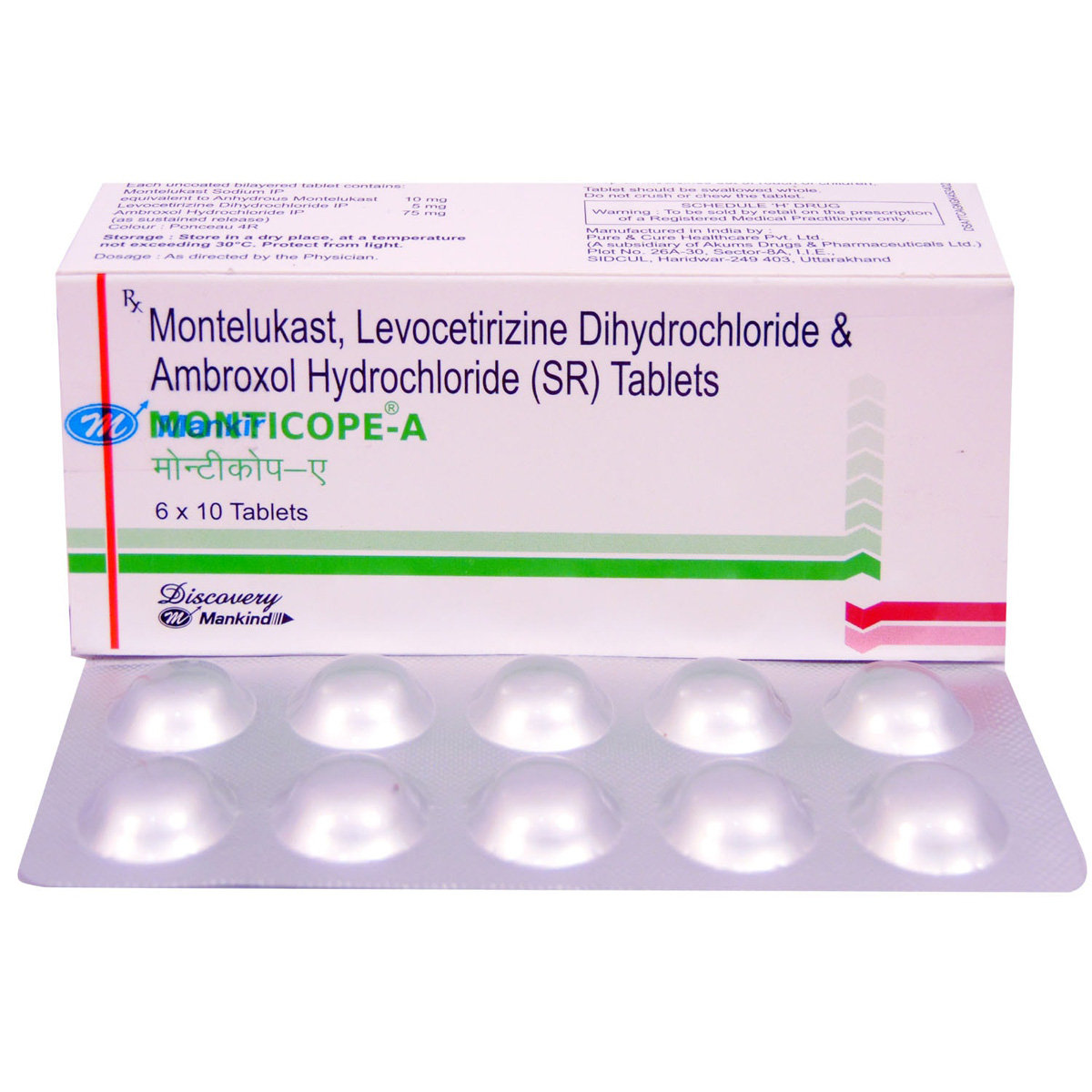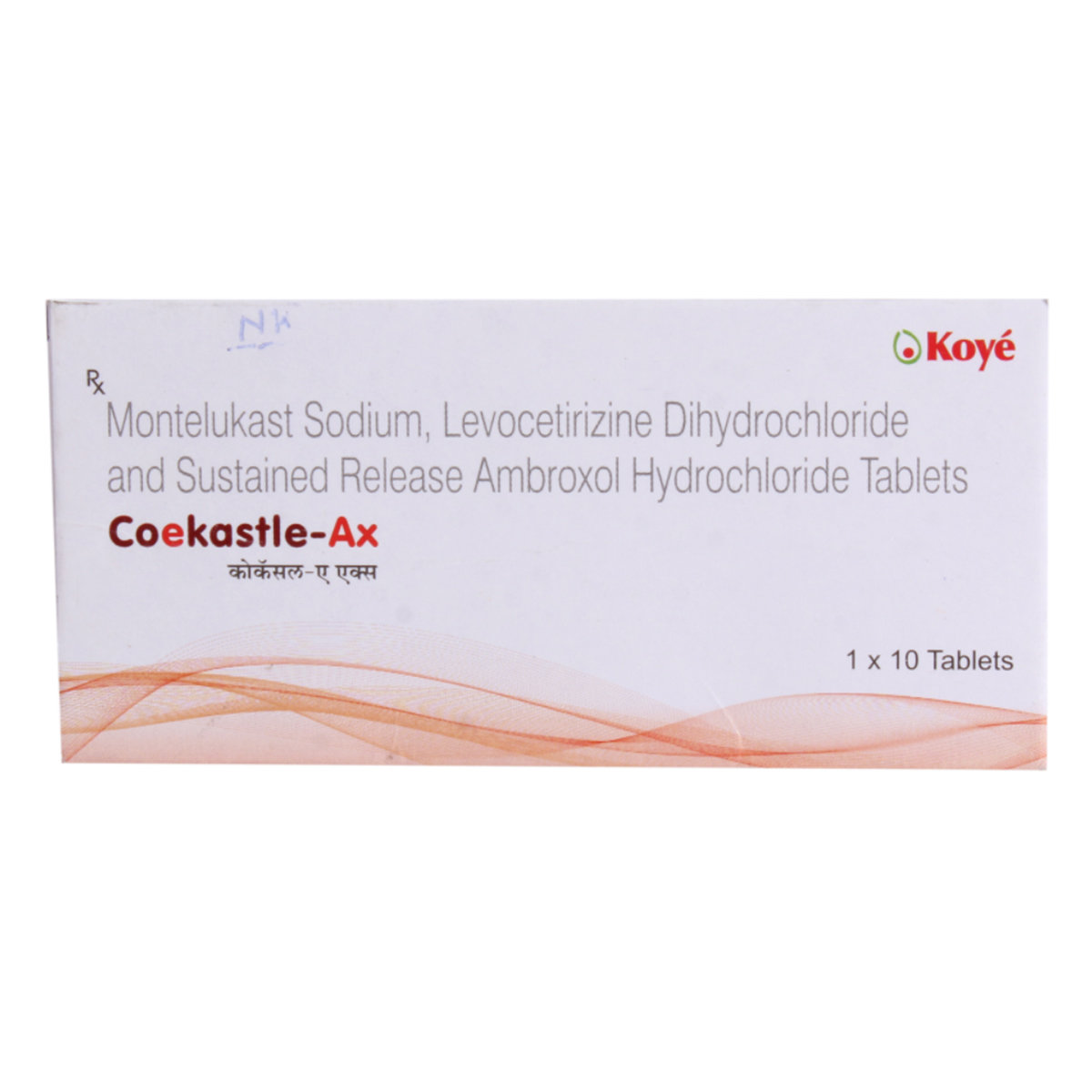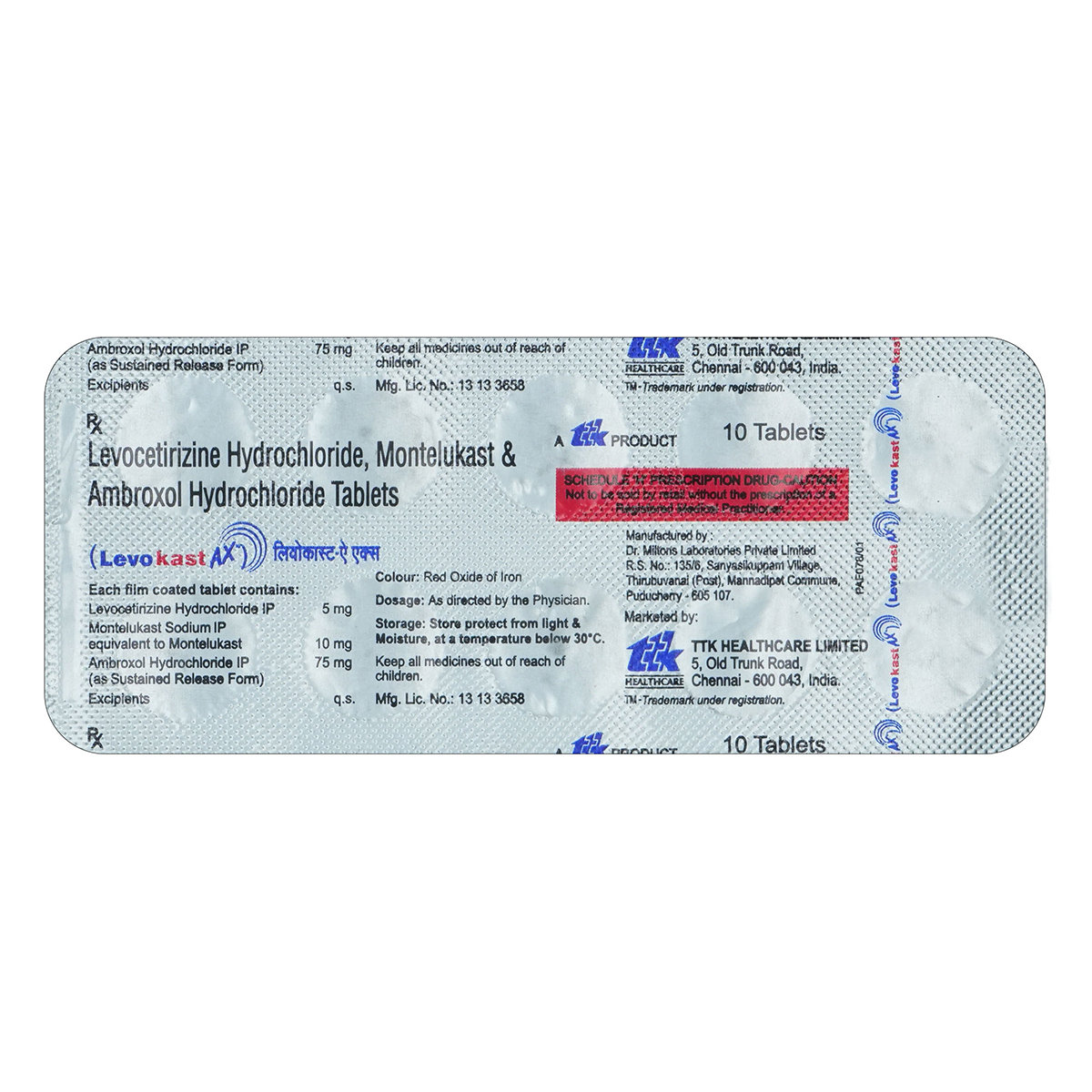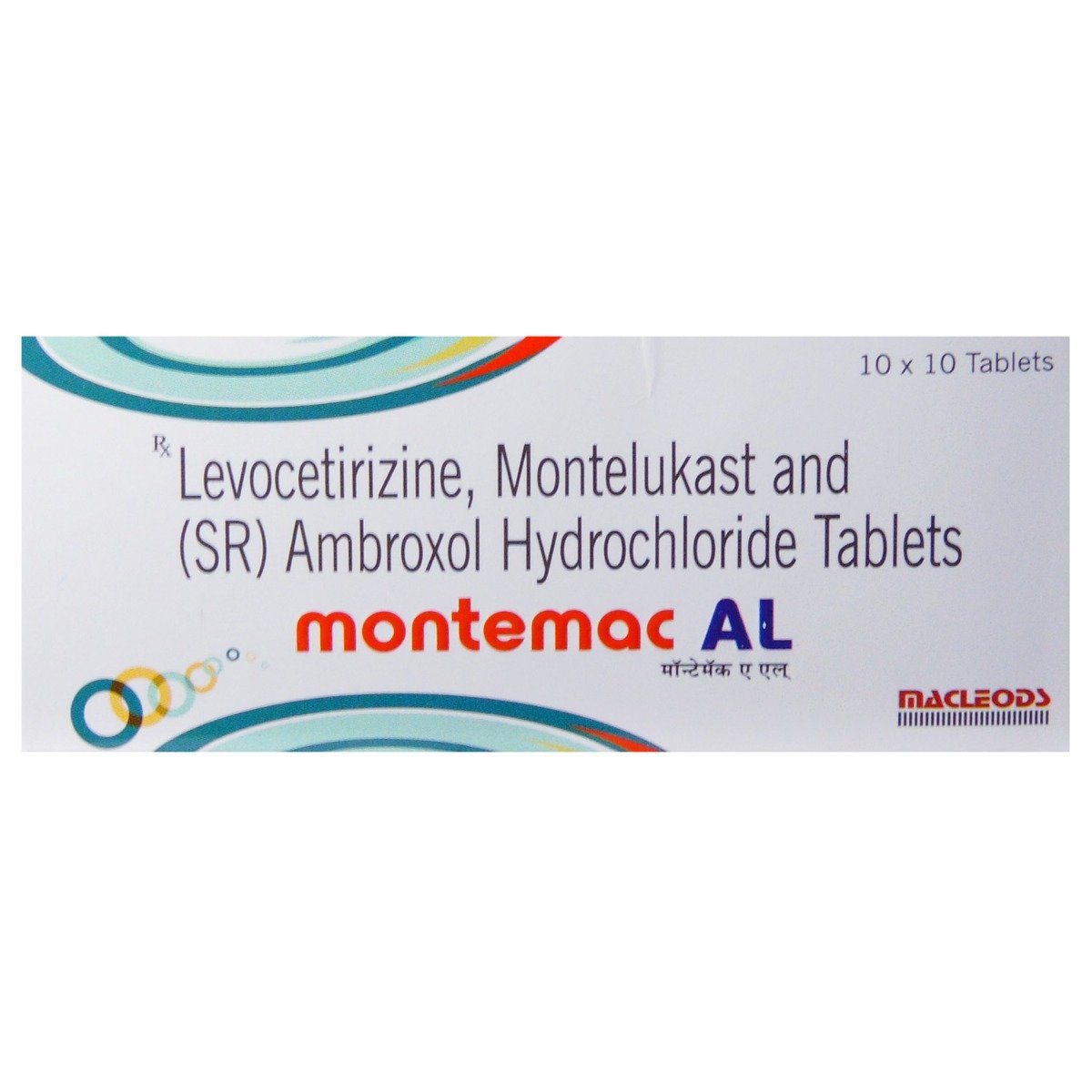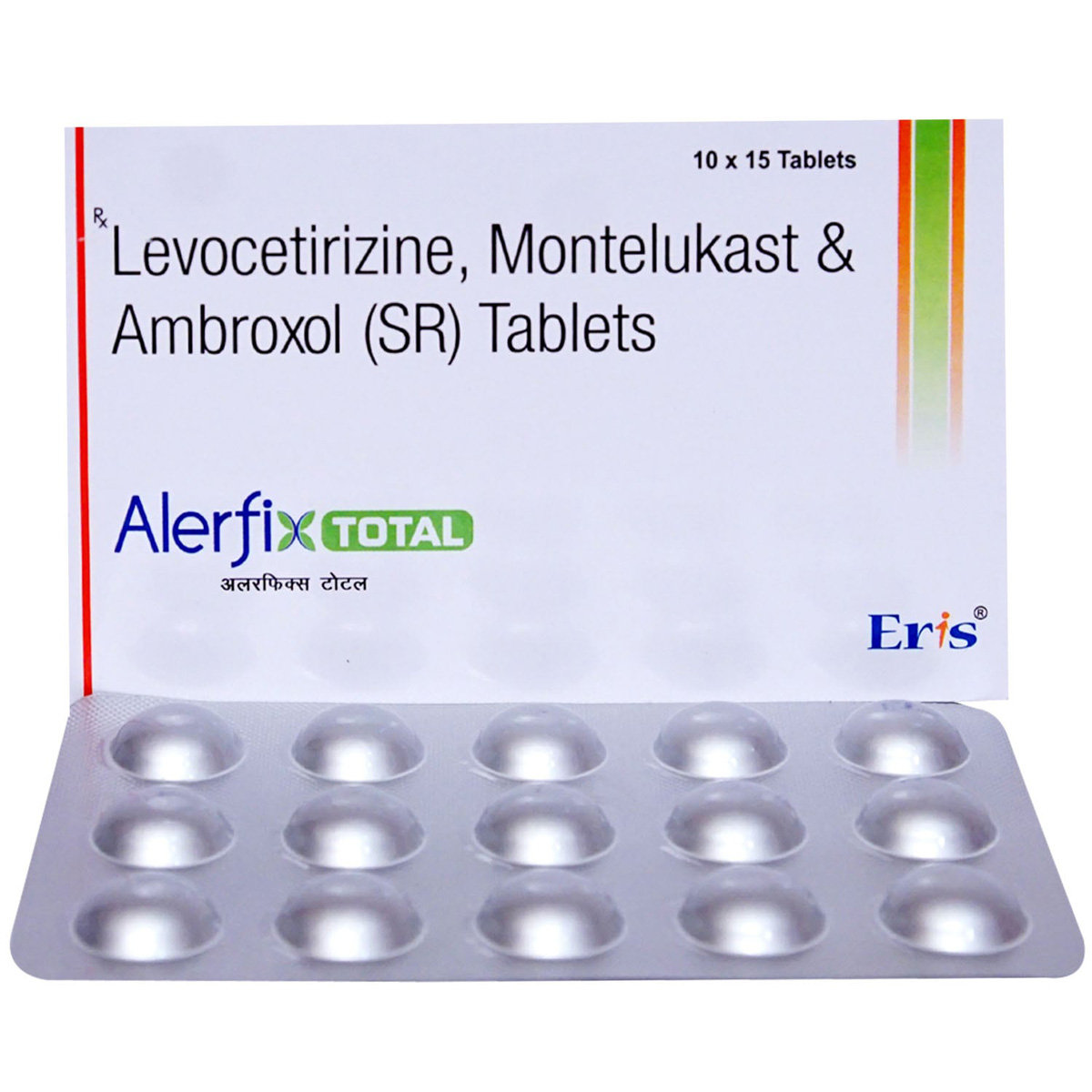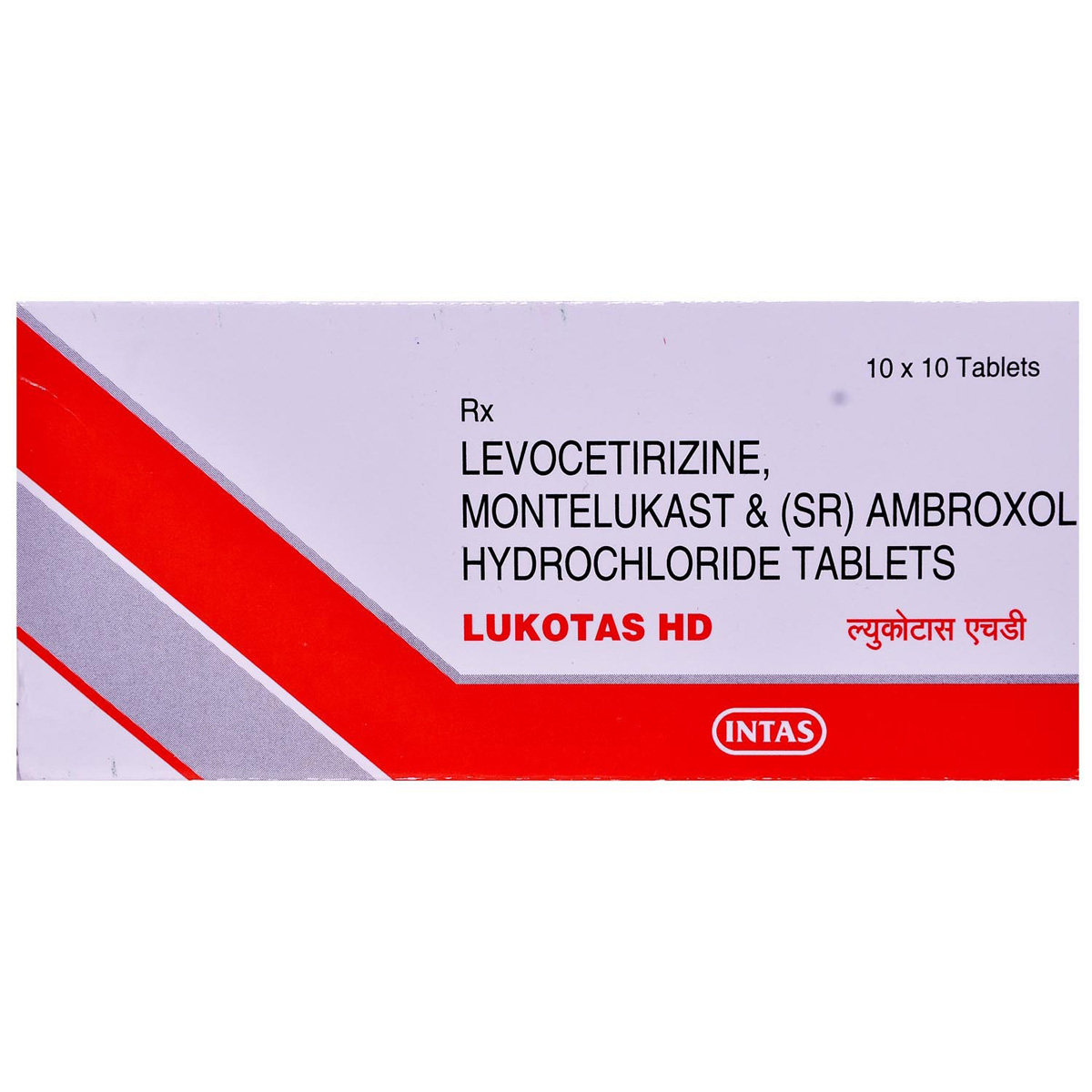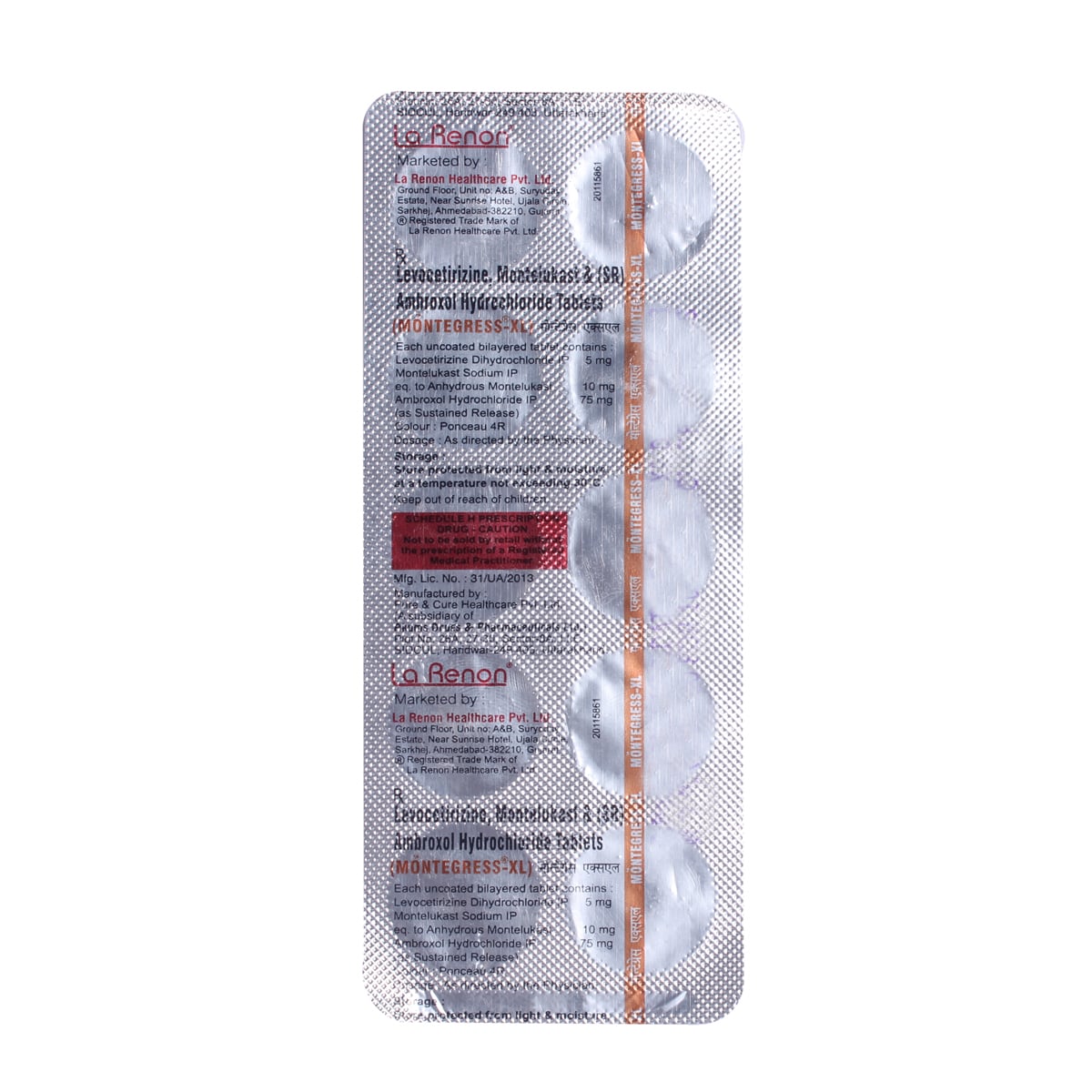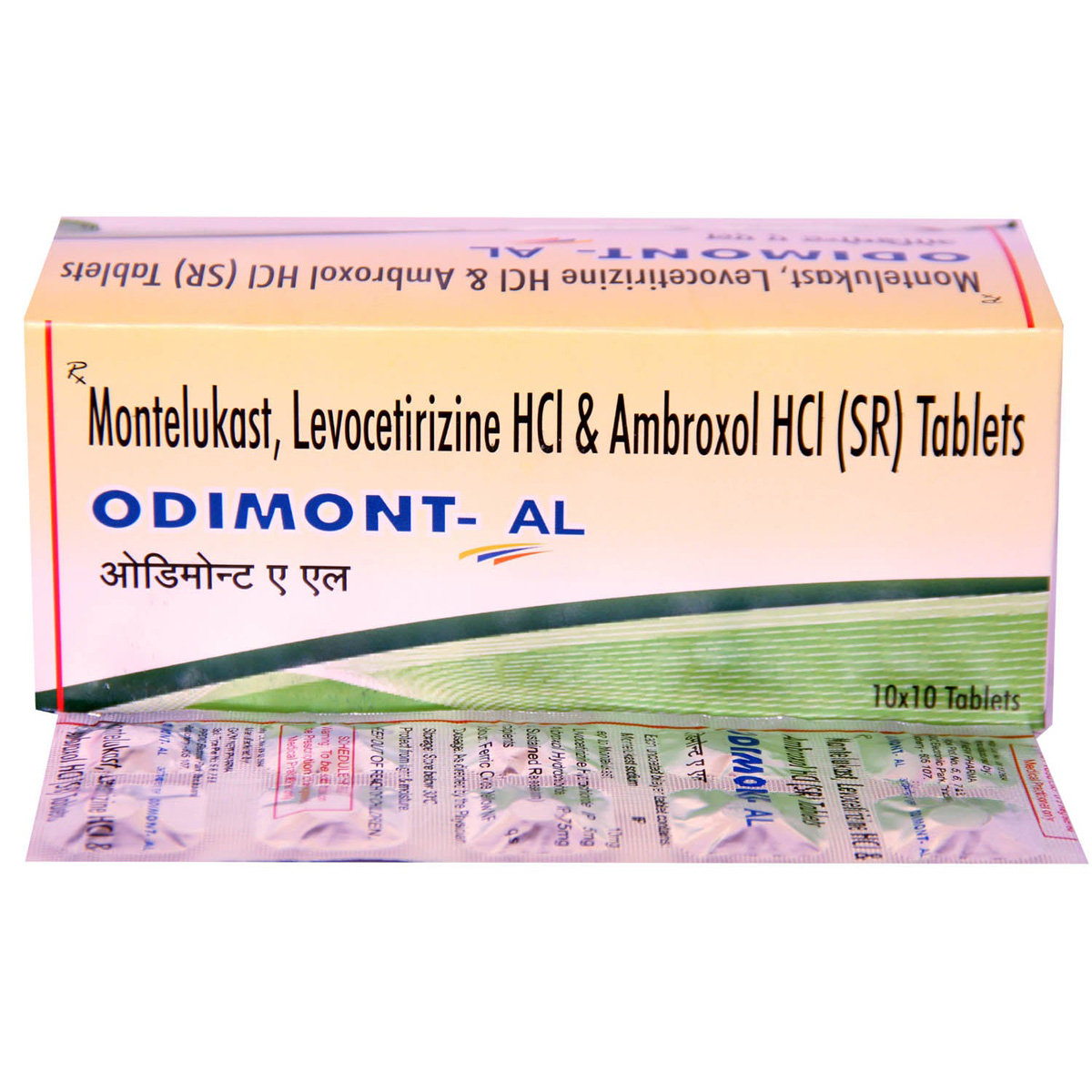Mok-Plus Tablet 10's
MRP ₹228
(Inclusive of all Taxes)
₹34.2 Cashback (15%)
Provide Delivery Location
Online payment accepted
 Prescription drug
Prescription drugWhats That
Composition :
Manufacturer/Marketer :
Consume Type :
Expires on or after :
Return Policy :
About Mok-Plus Tablet
Mok-Plus Tablet combines anti-asthma and anti-allergic drugs, primarily used to prevent asthma. Besides this, it relieves symptoms like sneezing, runny nose, and allergic skin due to various allergies. Asthma is a breathing problem in which airways narrow, swell, and produce extra mucus, leading to difficulty or laboured breathing. An allergy is an immune system response to foreign elements typically not harmful to your body. These foreign elements are known as 'allergens.'
Mok-Plus Tablet consisting of three medicines: Levocetirizine, Ambroxol, and Montelukast. Levocetirizine blocks the effects of a chemical messenger known as 'histamine,' which is naturally involved in allergic reactions. It helps relieve allergy symptoms such as sneezing, running nose, watery eyes, itching, swelling, congestion, or stiffness. Ambroxol is a mucolytic that reduces mucus and makes coughing easy. Montelukast is a leukotriene antagonist, which blocks a chemical messenger (leukotriene) and reduces inflammation and swelling in the nose, making it easy to breathe. Collectively, all of them help to improve symptoms and treat asthma.
Mok-Plus Tablet is taken with or without food in a dose and duration as advised by the doctor. Your dose will depend on your condition and how you respond to Mok-Plus Tablet . Sometimes, you may experience an upset stomach, diarrhoea, vomiting, dry mouth, headache, skin rash, and fatigue. Most of these side effects of Mok-Plus Tablet are temporary, do not require medical attention, and gradually resolve over time. However, if the side effects are persistent, reach out to your doctor.
Consume only if the doctor prescribes you. Never encourage self-medication or suggest your medicine to someone else. You should not take Mok-Plus Tablet if you are allergic to levocetirizine, ambroxol, or montelukast, have severe liver or kidney problems or have epilepsy. Check with your doctor if you're pregnant, breastfeeding, or taking other prescribed or non-prescribed medicines. If you are taking NSAIDs, antacid, or any other allergy medication, please inform your doctor before starting Mok-Plus Tablet as it might affect the absorption of Mok-Plus Tablet . Also, Mok-Plus Tablet does not relieve immediate breathing problems as it takes some time for its effect; please keep an inhaler with you.
Uses of Mok-Plus Tablet
Directions for Use
Key Benefits
Mok-Plus Tablet is composed of anti-asthma, and anti-allergic drugs consist of three medicines: Levocetirizine, Ambroxol, and Montelukast. The first medicine, i.e. Levocetirizine, belongs to a class of medications called antihistamine or anti-allergic that blocks the effects of a chemical messenger known as 'histamine,' naturally involved in allergic reactions. It helps relieve allergy symptoms such as sneezing, running nose, watery eyes, itching, swelling, congestion, or stiffness. Ambroxol is a mucolytic that reduces mucus and makes coughing easy. Montelukast is a leukotriene antagonist, which blocks a chemical messenger (leukotriene) and reduces inflammation and swelling in the nose, making it easy to breathe. Collectively, all of them help to improve symptoms and treat asthma.
Storage
Drug Warnings
Tell your doctor if you are pregnant, planning to become pregnant, or are breastfeeding. If you have kidney problems, dose adjustment might be required; the doctor will do it depending upon your disease's condition. Please inform your doctor if you have a problem passing urine and have epilepsy (fits) before starting Mok-Plus Tablet . If you are supposed to undergo skin testing, the doctor might advise you to stop taking Mok-Plus Tablet 72 hours before the test as it decreases response to skin prick test. Please consult your doctor immediately if you experience aggression, anxiety, or depression after taking Mok-Plus Tablet . It is advised to avoid contact with known allergens (allergy-causing agents) such as pollen, dust, pet danders etc. Certain food items are known to cause allergies to you. Concurrent use of Mok-Plus Tablet with alcohol or other antidepressants should be avoided to reduce your mental alertness. Please do not stop taking the Mok-Plus Tablet of a sudden, as it may lead to an increased risk of an acute attack of asthma. Avoid intake of Mok-Plus Tablet with fruit juices (like apple, orange, or grapefruit) as they might make the drug less effective and decrease its efficacy. Antacids like magnesium hydroxide, aluminium hydroxide etc., should be taken at least 30 minutes before or after taking Mok-Plus Tablet as taking together may slow the absorption of Mok-Plus Tablet .
Drug-Drug Interactions
Drug-Drug Interactions
Login/Sign Up
Coadministration of Rifapentine with Mok-Plus Tablet may reduce the blood levels and effects of Mok-Plus Tablet. This can lead to low treatment outcomes.
How to manage the interaction:
Taking Rifapentine with Mok-Plus Tablet together can possibly result in an interaction, it can be taken if your doctor has advised it. If you experience increased side effects such as headache, fever, sore throat, cough, abdominal pain, diarrhea, earaches, runny nose, or behavior and mood changes consult a doctor. Do not discontinue any medications without consulting a doctor.
Coadministration of Miconazole with Mok-Plus Tablet may increase the blood levels and effects of Mok-Plus Tablet. This increases the risk or severity of side effects.
How to manage the interaction:
Although there is a possible interaction between miconazole and Mok-Plus Tablet, you can take these medicines together if prescribed by your doctor. However, if you experience any symptoms such as fever, sore throat, cough, stomach pain, diarrhea, earache, runny nose, or uncommon, depression, confusion, difficulty concentrating, anxiety, hallucinations, irritability. memory impairment, restlessness, sleep walking, Consult a doctor immediately. Do not stop using medications without a doctor's advice.
Coadministration of Mok-Plus Tablet and Phenytoin may reduce the blood levels and effects of Mok-Plus Tablet. This can lead to low treatment outcomes.
How to manage the interaction:
Taking Mok-Plus Tablet and Phenytoin may interact with one another, but they can be taken together if your doctor has prescribed them. However, if you experience signs such as headache, fever, sore throat, cough, abdominal pain, diarrhoea, earache, runny nose, or behaviour and mood changes, consult a doctor immediately. Do not discontinue any medications without consulting a doctor.
Coadministration of Mok-Plus Tablet and primidone can reduce the levels and effects of Mok-Plus Tablet.
How to manage the interaction:
Taking Mok-Plus Tablet and Primidone together can possibly result in an interaction, it can be taken if prescribed by a doctor. However, if you experience any unusual symptoms, contact a doctor immediately. Do not discontinue any medications without consulting a doctor.
Coadministration of Mok-Plus Tablet and rifabutin can reduce the levels and effects of Rifabutin. This can lead to low treatment outcomes.
How to manage the interaction:
Taking Mok-Plus Tablet and rifabutin together can possibly result in an interaction, it can be taken if your doctor has advised it. However, if you experience increased side effects such as headache, fever, sore throat, cough, abdominal pain, diarrhea, earache, runny nose, or behavior and mood changes consult a doctor. Do not discontinue any medications without consulting a doctor.
Using esketamine together with Mok-Plus Tablet may increase side effects (drowsiness, confusion, difficulty concentrating, and impairment in thinking, judgment, reaction speed, and motor coordination).
How to manage the interaction:
Taking Mok-Plus Tablet with Esketamine together can result in an interaction, but it can be taken if a doctor has advised it. Do not discontinue any medications without consulting a doctor.
Drug-Food Interactions
Drug-Food Interactions
Login/Sign Up
Diet & Lifestyle Advise
- Eat a healthy diet, especially green leafy vegetables, and strictly do not consume alcohol and caffeine (coffee, tea, cola drinks, and chocolate). Caffeine is a stimulant and can decrease Mok-Plus Tablet ’s calming effects, and alcohol can enhance Mok-Plus Tablet 's effects.
- Smoking should be avoided while taking Mok-Plus Tablet as it can alter theophylline's blood levels, which may affect the dosing.
- Maintaining hygiene like washing hands after coming from outside is essential, as people with asthma are at a greater risk of infections.
- Stay active and exercise regularly to improve quality of life and increase tolerance to shortness of breath.
- Talk with a family member if you feel low or stressed, as it improves asthma symptoms and keeps it under control.
- Shortness of breath can be eased by doing pursed-lip breathing exercises. In this, relax your neck and shoulder muscles, breathe in with your nose for two seconds and breathe out through pursed lips for four seconds. Breathing techniques and such exercises will help you to improve your breathing capacity and lung health.
Side Effects of Mok-Plus Tablet
- Nausea
- Skin rash
- Diarrhoea
- Vomiting
- Dry mouth
- Headache
- Skin rash
- Fatigue
Habit Forming
Therapeutic Class
All Substitutes & Brand Comparisons
RX
Alvikoff-M Tablet 10's
Alvio Pharmaceuticals Pvt Ltd
₹151
(₹13.59 per unit)
33% CHEAPERRX
Monticope A Tablet 10's
Mankind Pharma Pvt Ltd
₹164
(₹14.77 per unit)
28% CHEAPERRX
Montaheal AXL Tablet 10's
Healing Pharma
₹169.5
(₹15.26 per unit)
25% CHEAPER
Drug-Diseases Interactions
Drug-Diseases Interactions
Login/Sign Up
FAQs
Drug-Drug Interactions Checker List
- IBUPROFEN
- NAPROXEN
- DICLOFENAC
- FLUCONAZOLE
- MICONAZOLE
- AMIDODARONE
- AMOXICILLIN
- ERYTHROMYCIN
- CEFUROXIME
Disease/Condition Glossary
Allergy: Allergy is an immune system response to foreign elements typically not harmful to your body. These foreign elements are known as ‘allergens.’ Allergic condition varies from person to person. Some might be allergic to certain foods and seasonal allergies like hay fever. At the same time, others might be allergic to pollen or pet dander. One of the symptoms of allergy is cough. Coughing occurs as a reflex action in the throat when mucus or any other foreign irritant is in it.
Asthma: It is a chronic (long-term) respiratory condition in which airways narrow, swell, and produce extra mucus, leading to difficulty in breathing. The asthma symptoms include wheezing (whistling sound while breathing), shortness of breath, chest tightness and cough, especially at night. The symptoms of mild persistent asthma may occur more than two times in a week and up to 4 nights in a month, whereas in the case of severe persistent asthma, the symptoms occur several times every day and most nights. The treatment for asthma includes medication, breathing exercises and self-care.

Have a query?
Alcohol
Safe if prescribed
It is not advised to consume alcohol while taking Mok-Plus Tablet as it leads to excessive drowsiness.
Pregnancy
Consult your doctor
Your doctor will weigh the benefits and any potential risks before prescribing it to you. Please consult your doctor.
Breast Feeding
Consult your doctor
Your doctor will weigh the benefits and any potential risks before prescribing it to you. Please consult your doctor.
Driving
Safe if prescribed
Avoid engaging in hazardous work requiring complete mental alertness like driving or operating machinery when taking Mok-Plus Tablet .
Liver
Consult your doctor
Mok-Plus Tablet to be taken with caution, especially if you have a history of liver diseases/conditions as dose adjustment might be required.
Kidney
Consult your doctor
Mok-Plus Tablet to be taken with caution, especially if you have a history of kidney diseases/conditions as dose adjustment might be required.
Children
Safe if prescribed
Mok-Plus Tablet is not recommended for children below 15 years of age without the doctor's consent. For children above 15 years, the dose to be adjusted and recommended by a child specialist only.





